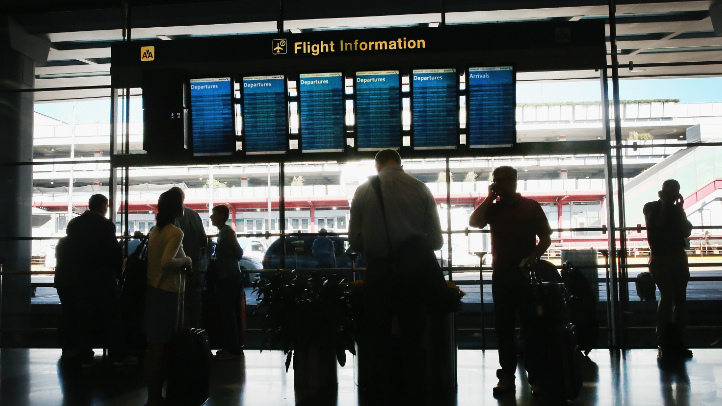Chicago officials and wildlife experts have spent nearly a week working to safely capture an alligator "hiding" in Chicago's Humboldt Park Lagoon, but what will happen after the reptile is finally caught?
"We want to ensure it can be moved to a permanent home in an appropriate location – not a lagoon in a Chicago park," said Kelley Gandurski, executive director for Chicago Animal Care and Control.
Officials had previously said that upon capture, the animal will be taken to the nearest zoo to be seen by a reptile veterinarian. Further information on where the animal's new premanent home would be remained unclear.
According to Grandurski, the hunt for the alligator is an "hour to hour situation," but should the alligator evade capture, experts believe it could survive a Chicago winter.
"I have been told that even in freezing conditions if he finds a warm brush to go under or some kind of a barrier he can survive the winter," Grandurski said.
As part of a new strategy to catch the alligator that’s been on the lam for almost seven days, the city has instituted new closures around the water and called in a gator expert from Florida to bring the reptilian saga to an end.
The eastern half of the Humboldt Park Lagoon was be closed to the public beginning Sunday night, and will remain closed until the alligator is captured, CACC said.
Local
The western half of Humboldt Park will remain open, including the swimming area and the field house, officials said.
The new strategy comes as the CACC hired Frank Robb, an alligator expert who owns Crocodilian Specialist Services in Florida. Robb was recommended by local experts in Florida, and arrived in Chicago on Sunday for an examination of the area surrounding the lagoon.
"Mr. Robb is a native Floridian," Grandurski said. "He has grown up around alligators and crocodiles."
No traps remained in the water as of Monday evening, Grandurski said, with Robb instead focused on tracking the animal, which was last officially spotted early Thursday morning.
"He is using different methods of tracking the alligator than what [Gator Bob] used," Grandurski said, refering to a volunteer alligator trapper who had been brought in to help captured the creature last week.
Officials warned that crowds gathering at the lagoon may have "altered" the animal's behavior.
"He was hiding," Grandurski said, noting the closures were put in place to capture the animal and not because of concern for the public.
Officials believe the alligator was being kept as a pet before it was taken to the lagoon.
Grandurski said such an incident is rare in the Chicago and the city "hopes to keep it that way." She urged anyone with exotic pets to call animal control instead of releasing such an animal into the wild.
"Dumping it into a lagoon is the last thing you should do," she said.



